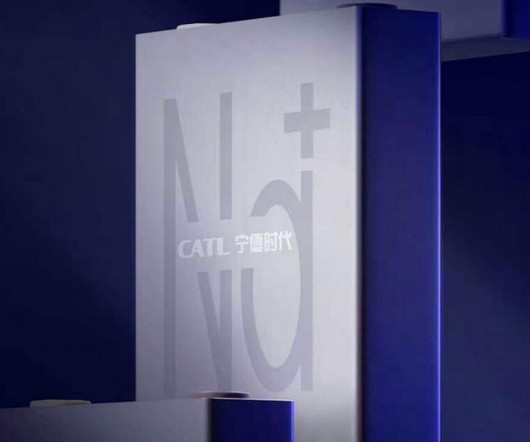Chery to be 1st automaker to adopt CATL's sodium-ion batteries
CN EV Post
APRIL 16, 2023
In the passenger car segment, sodium-ion batteries can generally meet the needs of models with a range of up to 400 kilometers, a CATL executive previously said. CATL's sodium-ion batteries are not far from starting to be installed in vehicles, after the Chinese power battery giant unveiled the new batteries in July 2021.
















Let's personalize your content